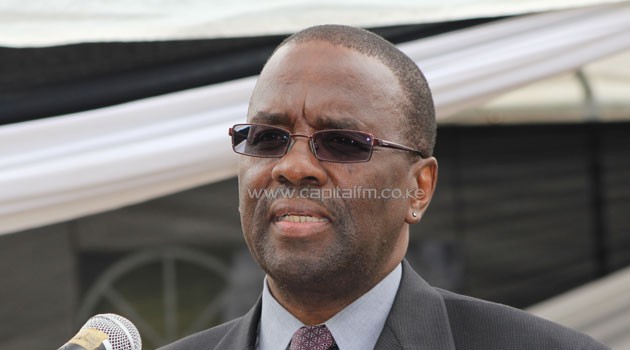
Speaking during a three-day retreat for the National Council for the Administration of Justice (NCAJ) in Nanyuki, Mutunga advised the organs to come up with innovative ways of addressing the emerging differences between the Judiciary and other organs dealing with insecurity in the country/FILE
Speaking during a three-day retreat for the National Council for the Administration of Justice (NCAJ) in Nanyuki, Mutunga advised the organs to come up with innovative ways of addressing the emerging differences between the Judiciary and other organs dealing with insecurity in the country.
“These challenges are persistently testing the foundations of our Constitution, and as justice sector agencies, we are duty-bound to rise to the occasion by devising creative ways of confronting them without compromising on our national ideals,” he said. “Our varied and collective responses to terrorism have brought the nexus between national security and justice into sharp relief.”
According to Mutunga, the latest spate of insecurity cases linked to terrorism have exposed inconsistencies between organs that uphold rights and those that oversee the national security.
Whereas it is a big challenge, he said it is not unique to Kenya but has also happened in other democracies that have faced terrorism-related crimes.
But he emphasised on the importance of keeping up with ongoing dialogue between the Judiciary, the Office of the Director of Public Prosecutions and the Police.
He said it is the best way to address the challenges that Kenya is experiencing in arrest, prosecution and determination of cases touching on terrorism.
“There is a temptation to see a clash of paradigms between those who enforce the law and those who uphold rights. Yet, this tension is not entirely unhealthy, but instead provides a creative opportunity for advancing the health of our democracy. The issue is not so much that there may be tensions, but the manner in which these tensions are managed to create and entrench a fledgling democracy in which the force of ideas triumphs over the most unimaginable brutality,” he asserted.
But in situations of such conflict, Mutunga pointed that all actions should be done for the public gain as explained in the national constitution; “the framers of our Constitution were all too aware that the Bill of Rights subsists alongside national security – the two are Siamese twins, joined at the navel. Public interest must override all attempts to resolve this contest between securitisation and rights.”
Mutunga however, urged judicial officers to exercise diligence and make keen reviews while dealing with cases on insecurity in view that terrorism is a real threat that has worsened other forms of crime.
“Judicial officers must also recognize that there are elements in the society that pose a threat to both human and state security. Any application of the law that advances notions of human rights need to appreciate the fact that security violations if left unpunished, violate the law and defeat the ends of justice,” he said.










































